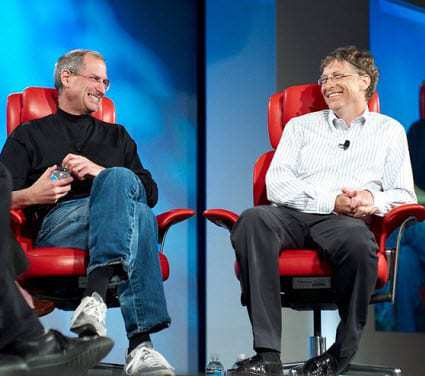
The technology community mourned today the passing of Apple co-founder and former CEO of Apple Inc. Jobs helped form Apple’s tech empire by driving innovation and promoting high quality technology. With his help, Apple produced the world’s first commercially successful personal computers, the Apple II. From there, the company quickly became a formidable force in the tech world, second to none. Apple is partly responsible for the advent of smart phones, mobile devices that changed the way people live their lives. Jobs passed away October 5, 2011, after a long battle with pancreatic cancer.
There are few facets of life and society that have not been affected by Apple in some way. The company has been involved in the world’s myriad industries, leaving a mark wherever it has gone. Jobs played a pivotal role in the success of the company, constantly pushing for innovation. His unrelenting pursuit for technologic progression has come to define the world of technology and his efforts may have laid the framework for what that world will look like in the future.
Earlier this year, Jobs stepped down from his position as CEO of Apple, citing his struggle with cancer. In 2004, Jobs had been diagnosed with a rare, highly-aggressive form of pancreatic cancer. The prognosis for his disease was poor, but Jobs persevered through treatment and other hardships to outlive the expectations of his doctors. Though Jobs continued to serve as a chairman of the board for Apple after his resignation as CEO, his duties were severely impaired by the progression of the disease.
Jobs’ family released a statement yesterday proclaiming his passing. Apple paid tribute to him on the company’s website.
Jobs is survived by his wife, Laurene, their three children and a daughter from a previous relationship, as well as the most successful technology company in the world.
